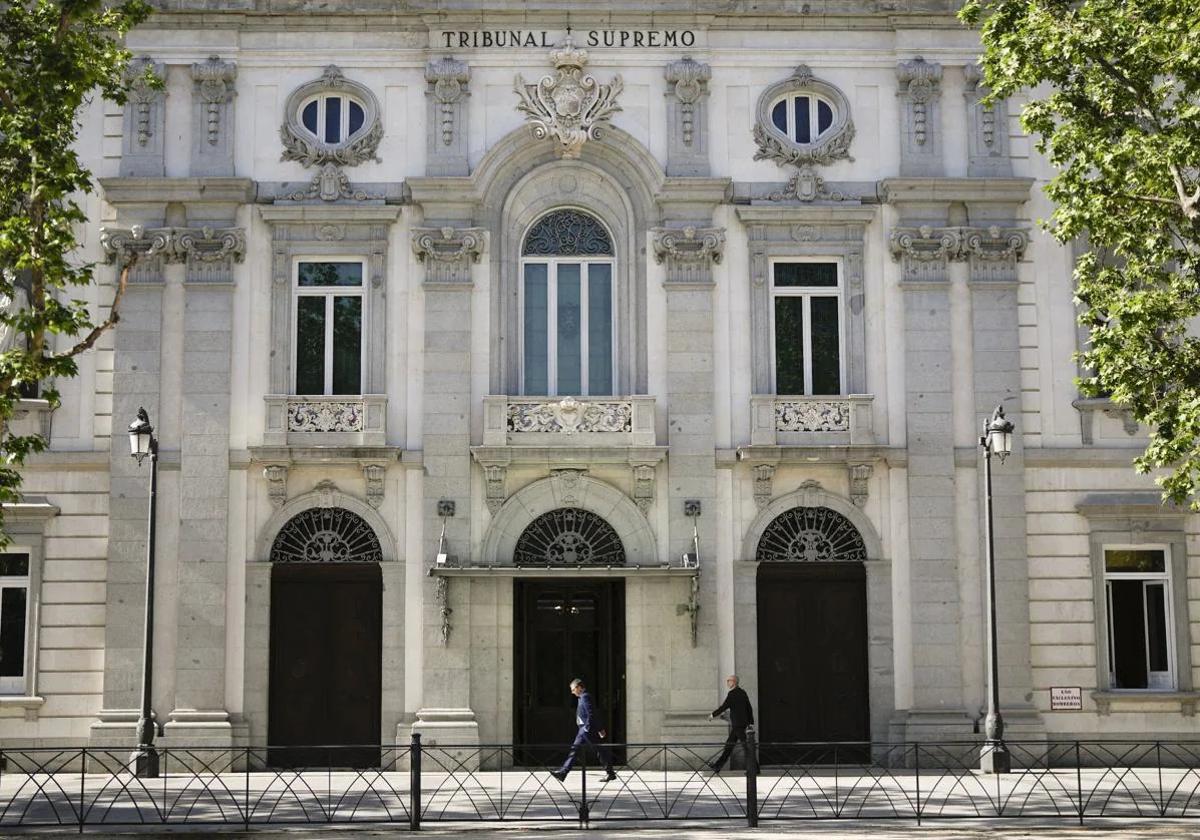

Sections
Highlight

An unsolicited kiss on the cheek constitutes the criminal offence of sexual assault. The kiss does not need to be on the mouth or on other parts of the body where it might be construed more as a sexual advance on that person. Nor does it need to involve violence or intimidation. To be considered sexual abuse according to the old law and sexual assault since the September 2022 law reform, which introduced the 'only yes is yes' ruling, it is enough for the kiss to be a non-consensual intrusion into the sexual freedom of the other person.
The key is the lack of consent. "There can be no no-consensual bodily contact under any pretext," the Supreme Court ruled in a judgement handed down last week.
The new ruling comes as a result of an appeal from a criminal case that stands out for another reason, the defendant is an active police officer.. Moreover, this comes in the same year in which the former president of the Spanish Football Federation, Luis Rubiales, faces a criminal trial for kissing national team player Jenni Hermoso on the mouth.
In this case the criminal court of Seville passed down a prison sentence of one year and nine months plus a further year of probation for an officer of the National Police who kissed a detainee without her consent on the cheek and tried to kiss her again on the lips, the second time without success because the victim managed to turn her face away. This went to appeal at Andalucía's High Court and then to the Supreme Court.
The Supreme Court, in a ruling drafted by senior judge Vicente Magro, rejects the police officer's appeal and, as the provincial and regional courts did before, considers him to be the author of a crime of sexual abuse with undue advantage (according to the penal code in force at the time). The sentencing court did not impose the permitted maximum sentence of three years in prison after weighing up both aggravating and mitigating factors in this case, one mitigating factor being that the police officer was under the influence of alcohol.
All three courts consider it proven that the convicted policeman, taking advantage of the two hours he spent guarding his victim in the cells while waiting for her to stand before a judge, repeatedly complimented her, asked her to have a few beers with him, implied that he had an erection for her and gave her handwritten messages on a piece of paper in which, among other things, he asked her to allow him to hug her, to which the detainee shook her head. The woman reported the assault upon her release and was able to return to the town in Malaga where she lived after the judicial proceedings.
The Supreme Court begins its ruling by making it clear that "a 'stolen kiss' and, therefore, kissing without express or tacit consent, constitutes a sexual assault under current law and sexual abuse at the time of the known facts" now on record, which date back to 2020. The court points out that, in this case, "it is proven that there was physical contact with sexual content by the appellant towards the plaintiff, such as a non-consensual kiss" and that he acted despite having received a rejection to his constant attempts at intimacy and a refusal to the proposal to embrace her.
The facts were deemed to fall correctly under article 181.1 of the criminal code at the time of the events taking place because his conduct involved "a non-consensual bodily contact with sexual significance". "The kiss and the attempt at another kiss constitute an intrusion into the sexual freedom of a person who was in a hostile and unknown environment, with the tendency or purpose of obtaining sexual satisfaction at the expense of another", in the judges' view.
"Consequently, it cannot be understood that there is a right for any person to approach another person and give her a kiss when the victim does not allow it as a show of affection or warmth due to her personal circumstances or family situation, but rather as a personal attack on her privacy and sexual freedom to consent or not to consent to who may approach her to perform such an intimate and personal act as kissing her."
The Supreme Court clarifies that "a 'no' from the victim is not necessary in the face of attempts to kiss a woman, but for there not to be a crime, what is needed is consent." In summary: "The key is consent, to the point that if consent has not been given, then this will always be sexual assault."
So, in order to avoid the possibility of a crime being committed, the judges point out, subjective assessments on the existence of consent are not valid: "When the expression 'the circumstances of the case' is used to understand whether there was consent, these cannot be interpreted in a partial and subjective way by one of the parties, but must be circumstances that clearly and evidently show the consensual possibility that one of the persons can kiss the other without infringing their sexual freedom and their intimacy and privacy."
Publicidad
Publicidad
Publicidad
Publicidad
Esta funcionalidad es exclusiva para registrados.
Reporta un error en esta noticia

Debido a un error no hemos podido dar de alta tu suscripción.
Por favor, ponte en contacto con Atención al Cliente.

¡Bienvenido a SURINENGLISH!

Tu suscripción con Google se ha realizado correctamente, pero ya tenías otra suscripción activa en SURINENGLISH.
Déjanos tus datos y nos pondremos en contacto contigo para analizar tu caso

¡Tu suscripción con Google se ha realizado correctamente!
La compra se ha asociado al siguiente email
Comentar es una ventaja exclusiva para registrados
¿Ya eres registrado?
Inicia sesiónNecesitas ser suscriptor para poder votar.